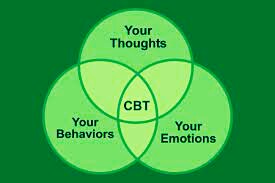From the age of 11, I was bullied mercilessly at school and in the small village where I lived. I couldn't go anywhere without getting targeted.
I'd get spat at, pushed and shoved by one boy who was two stone heavier than me and who was a trained boxer and a neighbour who'd once been a friend marched up to me on the bus and spat "You're ugly," in my face as other kids howled with laughter. Well, you'd better laugh so you won't be the target of the bullies.
I had no idea what I'd done to merit this treatment. Even today, I still haven't answered the question why? That's when my agoraphobia (also known as social anxiety disorder) began.
It made me terrified to go out. Outside my home. To school.
By the age of 13, I was hiding pills under my bed with the intention of swallowing the lot.
My writing was the only thing that gave me confidence and that's what stopped me from taking an overdose.
Ever since I was a little kid, I'd been a writer scribbling away on notepads, writing wee stories. I sold my first piece to Bunty comic when I was 13, then sales of short stories to Jackie magazine followed.
My agoraphobia didn't ease and even simple things like going to the shops were a nightmare. The only way to beat it was by going with someone else. I tried various jobs and they didn't last - I was too jumpy and nervous. It's just as well I've always make some money out of writing magazine articles.
My agoraphobia is so bad that when I won the Scottish Association of Writers' Award for my crime novel Vile City in 2011 LINK my social phobias were so bad that I couldn't attend the ceremony. It'd have been a boost for my writing career as there were some great authors in attendance as well as literary agents and publishers.
It wasn't always that way. Once upon a time I was a confident kid - maybe a bit too confident as I once told my teacher that my answer to a question was right and she was wrong. In primary school I regularly entered Burns competitions* where I'd sing and recite poetry. The stage held no fear for me.
Cognitive behavioural therapy (CBT)
But what about if the way you behave is perfectly proportionate to the way other people treat you? Besides, my problem has never been with myself and how I've responded to others - it's with other people. Life is tough enough without people being so nasty and petty minded to each other.
Cognitive Behavioural Therapy does help people, but I knew it wasn't going to work for me when my psychologist was sitting there telling me how I needed to learn to be happy with who I was and out the corner of my eye I saw a box of slimmasoup on her shelf. With all her training she wasn't happy with who she was, so how could she help me?
By the end of my sessions with her she couldn't. I was offered CBT again and I refused it. I didn't want to take up the
appointment time where somebody else could be helped. Just because it didn't work for me didn't mean the treatment wouldn't work for them.
Antidepressants
At one point I was also put on the antidepressant Fluoxitene (Prozac).
Tip - if you're vegetarian or vegan like me you can ask for the medication in a solution form like a cough syrup, as it usually comes in gelatine capsules (bits of animal muscle and bone swept up from the slaughterhouse floor).
So far though, nothing has helped. Going out alone is something I avoid. When I have to go out alone it's a nightmare for me. I have panic attacks where I feel as though I'm going to stop breathing or have a heart attack.
The only way I can go out alone is with my rescue dog. I'm so preoccupied playing and talking to him that I seldom have panic attacks.
At the moment, I'm on Diazepam to help me cope with day to day life. Like everyone I have good and bad days.
Are you agoraphobic? quiz
Do you feel scared before you go out or try and avoid going out?
Are simple things like going to a nearby store difficult for you?
Do you suffer from panic attacks when you go out?
Is the only place you feel safe your home?
Do you suffer from obsessive compulsive disorder before you go out? Looking constantly out the window to see if anyone's around?
*Robert Burns is Scotland's most famous writer. Competitions are held once a year where his songs are sung and his poems recited by school children.

























